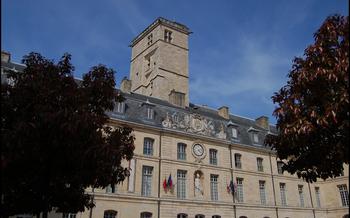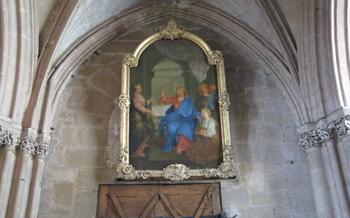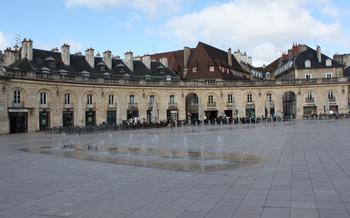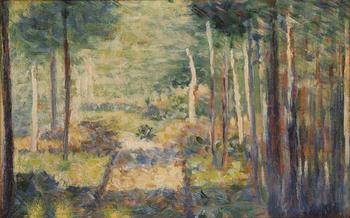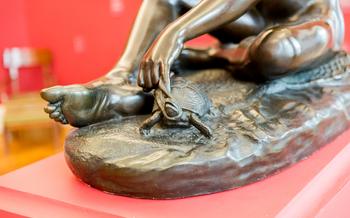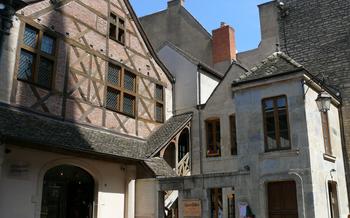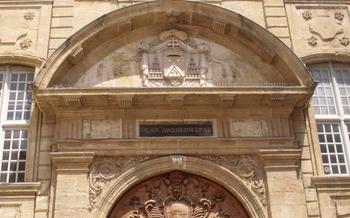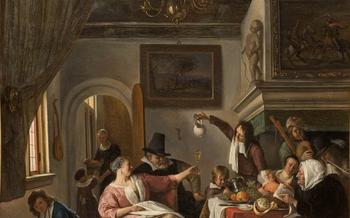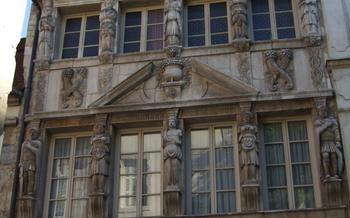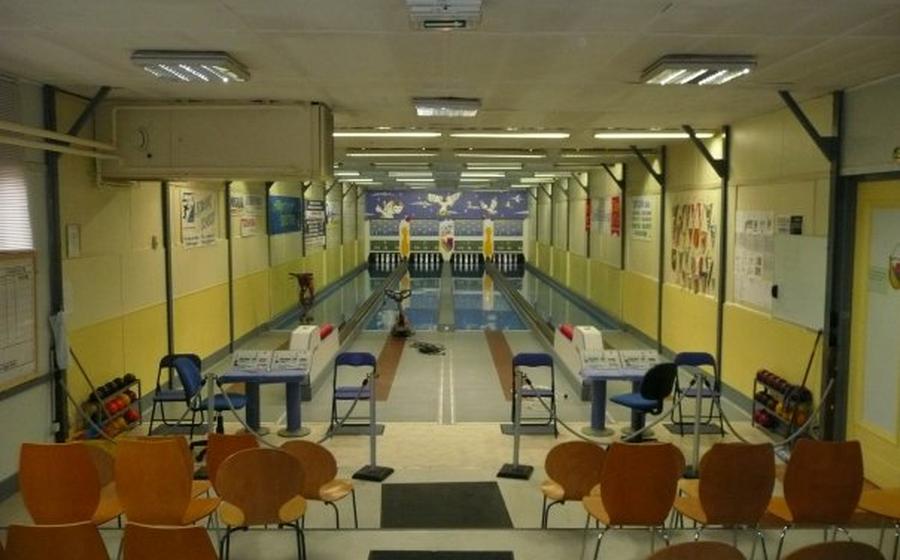
Musée de la Moutarde
- Musée de la Moutarde: A Culinary Adventure
- Interactive Exhibits and Demonstrations
- Mustard Shop and Degustation Area
- Historical Significance of Dijon Mustard
- Guided Tours and Educational Programs
- Accessibility and Visitor Information
- Nearby Attractions and Recommendations
- Mustard-Themed Activities and Experiences
- Photography and Social Media Tips:
- Practical Information and Planning Tips
- Family-Friendly Activities and Amenities
- Sustainability and Eco-Friendly Practices
- Accessibility for Visitors with Disabilities
- Historical Context of Dijon and Mustard
- Insider Tip: Hidden Gem and Local Favorite
Musée de la Moutarde: A Culinary Adventure
History and Origin
Dijon mustard, a staple of French gastronomy, has a rich history dating back to the Middle Ages. The city of Dijon, located in the heart of the Burgundy region, became a renowned center for mustard production due to its favorable climate, access to quality mustard seeds, and skilled craftsmen. In 1937, the Musée de la Moutarde was founded to celebrate and preserve the heritage of this iconic condiment. Housed in a former mustard factory, the museum offers visitors a unique culinary adventure, showcasing the history, production, and flavors of Dijon mustard.
Interactive Exhibits and Demonstrations
The Musée de la Moutarde offers a captivating array of interactive exhibits and demonstrations that bring the world of mustard to life. Visitors can embark on a sensory journey, indulging in guided mustard tastings that showcase the diverse flavor profiles of Dijon's culinary treasure. Experts guide visitors through the nuances of each mustard, explaining the impact of ingredients, aging, and production methods on its distinct characteristics.
Multimedia displays captivate visitors with immersive videos, interactive screens, and holographic projections that narrate the fascinating story of mustard's journey from ancient origins to its current culinary prominence. These displays transport visitors to mustard fields, medieval kitchens, and modern-day production facilities, offering a multidimensional understanding of mustard's rich history and cultural significance.
Mustard enthusiasts can unleash their creativity at hands-on workshops, where they learn the art of blending their own mustard creations. Under the guidance of experienced instructors, visitors experiment with different mustard seeds, vinegars, and spices, crafting unique flavor combinations that reflect their personal preferences. These workshops provide an unforgettable and interactive experience, allowing visitors to take home their personalized mustard creations.
The museum also houses a treasure trove of historical artifacts, including vintage machinery, packaging, and advertising materials that trace the evolution of mustard production and marketing. These artifacts provide a glimpse into the ingenuity and craftsmanship that have shaped Dijon's mustard-making legacy.
Mustard Shop and Degustation Area
The Musée de la Moutarde houses a treasure trove of mustard varieties, catering to every palate and preference. From classic Dijon mustard with its sharp, tangy flavor to infused varieties boasting unique flavor profiles, the museum's mustard shop is a haven for mustard aficionados.
Visitors can sample and purchase a wide range of mustards, including artisanal creations from local producers. The museum also offers an array of mustard-themed souvenirs and gifts, from quirky mustard-shaped magnets to elegant mustard serving sets.
The degustation area within the museum provides a dedicated space for savoring the diverse flavors of mustard. Here, visitors can indulge in guided tastings, learning to appreciate the nuances of each mustard and how to pair them with different foods.
Mustard's versatility extends beyond its traditional role as a condiment. The museum's degustation area showcases innovative ways to incorporate mustard into various culinary creations. Visitors can experiment with mustard-infused vinaigrettes, sauces, marinades, and even desserts, discovering the endless possibilities of this culinary gem.
Whether you're a mustard enthusiast or simply curious about this iconic condiment, the Musée de la Moutarde's mustard shop and degustation area offer an immersive and flavorful experience that will tantalize your taste buds and leave you with a newfound appreciation for the art of mustard-making.
Historical Significance of Dijon Mustard
Dijon mustard holds a significant place in French cuisine and culinary history. Its unique flavor and versatility have made it an indispensable ingredient in many classic French dishes, including sauces, dressings, and marinades. The city of Dijon has been renowned for its mustard production since the 13th century, earning it the title of "Mustard Capital of the World."
In 1937, the Musée de la Moutarde was established to celebrate and preserve the rich heritage of Dijon mustard. The museum showcases the history, traditions, and techniques associated with mustard-making, highlighting the expertise and craftsmanship of local producers.
Dijon mustard's reputation for quality and authenticity is further solidified by its protected status as a "Geographical Indication" (GI) product. This designation ensures that only mustard produced within the specific region of Dijon can bear the prestigious "Moutarde de Dijon" label, guaranteeing its adherence to traditional methods and flavors.
The historical significance of Dijon mustard extends beyond its culinary significance. It has been featured in famous paintings by artists such as Manet and Cézanne, and mentioned in literary works by renowned authors like Rabelais and Proust. These references underscore the cultural significance of Dijon mustard as a symbol of French gastronomy and heritage.
To this day, Dijon mustard continues to be a beloved condiment, appreciated by chefs, gourmands, and mustard enthusiasts worldwide. Its distinctive taste and versatility have ensured its enduring popularity, making it a culinary treasure that represents the rich history and traditions of French cuisine.
Guided Tours and Educational Programs
The Musée de la Moutarde offers a variety of guided tours and educational programs to enhance visitors' experience and understanding of the world of mustard.
Guided Tours:
-
General Tours: In-depth tours led by knowledgeable guides provide a comprehensive overview of the museum's exhibits, the history of Dijon mustard, and the mustard-making process. Tours are available in multiple languages to accommodate international visitors.
-
Thematic Tours: Specialized tours focus on specific aspects of mustard, such as its role in French cuisine, its cultural significance, or its health benefits. These tours offer a deeper dive into the world of mustard for enthusiasts and curious minds.
School Programs:
-
Educational Workshops: Tailored workshops for school groups combine hands-on activities with interactive presentations, allowing students to learn about mustard's history, production, and culinary applications. Workshops can be customized to align with specific curriculum requirements.
-
Mustard-Making Demonstrations: Students witness the traditional mustard-making process firsthand, from grinding the seeds to blending the ingredients. They learn about the different types of mustard seeds, the role of vinegar and other flavorings, and the importance of quality control.
Culinary Workshops:
- Mustard Cooking Classes: Aspiring chefs and food enthusiasts can participate in hands-on cooking classes that showcase the versatility of mustard in various culinary creations. Participants learn to incorporate mustard into marinades, sauces, dressings, and even desserts, creating delicious and memorable dishes.
Mustard Appreciation Society:
- Membership Benefits: Mustard aficionados can join the exclusive Mustard Appreciation Society to receive exclusive benefits, including invitations to special events, discounts on museum merchandise, and access to limited-edition mustard creations. Members also have the opportunity to connect with fellow mustard enthusiasts and share their passion for this culinary treasure.
Accessibility and Visitor Information
The Musée de la Moutarde welcomes visitors of all abilities and offers a range of accessibility features to ensure a comfortable and enjoyable experience. Wheelchair users will find ramps and designated parking spaces, and the museum is fully accessible throughout.
For those who prefer a guided tour, knowledgeable guides are available to provide in-depth insights into the world of mustard. Tours can be arranged in multiple languages to accommodate international visitors.
To enhance the visitor experience, the museum provides brochures, maps, and audio guides in various languages. These materials offer additional information and context, allowing visitors to delve deeper into the exhibits at their own pace.
Respectful behavior and photography are encouraged within the museum. Visitors are requested to refrain from touching the exhibits and to use flash photography only with permission.
For inquiries and bookings, visitors can contact the museum via phone, email, or the official website. The friendly and helpful staff is always ready to assist with any questions or requests.
Nearby Attractions and Recommendations
Dijon, the capital of Burgundy, offers a wealth of attractions beyond the Musée de la Moutarde, inviting visitors to explore its rich history, gastronomy, and architectural beauty.
-
Mustard Route: Embark on a scenic drive along the Route de la Moutarde, connecting Dijon to other mustard-producing towns in the region, including Beaune, Nuits-Saint-Georges, and Flavigny-sur-Ozerain. Discover the secrets of mustard-making as you visit traditional mustard mills and savor the diverse flavors of local mustard varieties.
-
Gastronomic Delights: Delight in the culinary treasures of Dijon and its surroundings. Sample regional specialties such as escargots, coq au vin, and bœuf bourguignon at charming restaurants. Explore local markets, fromageries, and chocolateries to indulge in the region's finest produce, cheeses, and sweet treats.
-
Architectural Heritage: Admire the architectural wonders of Dijon, including the imposing Palais des Ducs et des États de Bourgogne, the Gothic Cathédrale Saint-Bénigne de Dijon, and the Renaissance-style Hôtel de Vogüé. Stroll along the picturesque streets of the historic city center, lined with half-timbered houses and elegant mansions.
-
Day Trips and Excursions: Extend your stay in the region and explore the surrounding countryside. Visit the nearby Château de la Rochepot, a magnificent medieval fortress perched atop a hill, or take a leisurely bike ride through the vineyards of the Côte de Nuits, renowned for its exceptional Pinot Noir wines.
Mustard-Themed Activities and Experiences
For a deeper dive into the world of mustard, Dijon offers a range of immersive experiences beyond the museum. Mustard-making workshops allow visitors to learn the traditional techniques and create their own unique blends. Guided tours of mustard producers provide a behind-the-scenes look at the production process, often with opportunities to sample different varieties. Culinary workshops focus on incorporating mustard into various dishes, from classic sauces to innovative culinary creations. Throughout the year, Dijon hosts mustard festivals and events that celebrate the region's culinary heritage, featuring tastings, demonstrations, and lively entertainment.
Photography and Social Media Tips:
The Musée de la Moutarde offers a wealth of Instagrammable moments, from the vibrant displays of mustard jars to the interactive exhibits. Don't forget to capture your mustard-making experiences and share them with the world using the hashtag #MustardMuseum. Follow the museum's social media accounts for updates on events, workshops, and mustard-related news. We encourage visitors to share their mustard adventures online, and we may even feature your photos and stories on our social media channels. Join the mustard-loving community and let your taste buds guide your social media journey!
Practical Information and Planning Tips
Before embarking on your mustard adventure, it's essential to plan your visit to the Musée de la Moutarde. Here are some practical tips to ensure a smooth and enjoyable experience:
-
Opening Hours and Admission Fees: The museum welcomes visitors from Tuesday to Sunday, with varying hours depending on the season. Check the official website for the most up-to-date information on operating hours and admission fees. Discounted rates are available for students, seniors, and families.
-
Advance Booking: To avoid disappointment, particularly during peak tourist season, it's advisable to book your tickets in advance. Online reservations are available through the museum's website, allowing you to secure your spot and skip the queues.
-
Tours and Workshops: Guided tours are offered in multiple languages, providing an in-depth exploration of the museum's exhibits and the history of Dijon mustard. Mustard-making workshops and cooking classes are also available, offering hands-on experiences for mustard enthusiasts. Advance booking is recommended for these activities.
-
Duration of Visit: Plan to spend at least two hours exploring the museum's exhibits, participating in interactive displays, and savoring the different mustards. Allow extra time if you wish to attend a guided tour or participate in a workshop.
With these practical tips in mind, you can plan a memorable and enriching visit to the Musée de la Moutarde, immersing yourself in the world of Dijon's culinary treasure.
Family-Friendly Activities and Amenities
The Musée de la Moutarde welcomes families with open arms, offering a range of engaging activities and amenities to ensure a fun and educational experience for all ages.
Interactive exhibits, games, and activities are designed specifically for kids, capturing their imagination and teaching them about the fascinating world of mustard. Families can participate in special workshops and programs tailored for their needs, creating lasting memories and bonding over a shared interest in this culinary treasure.
To cater to the needs of parents with young children, the museum provides nursing rooms, changing tables, and stroller parking areas, ensuring a comfortable and stress-free visit. Family discounts and special offers make it even more affordable for families to enjoy the museum's offerings.
The Musée de la Moutarde recognizes the importance of fostering a love for food and culture in children, and its family-friendly approach makes it an ideal destination for families seeking a unique and educational experience.
Sustainability and Eco-Friendly Practices
The Musée de la Moutarde is committed to promoting sustainability and eco-friendly practices. The museum has implemented several initiatives to reduce its environmental impact, including:
-
Reducing Waste: The museum has implemented a comprehensive recycling program and composts organic waste to minimize its contribution to landfills.
-
Conserving Energy: The museum utilizes energy-efficient lighting and heating systems to reduce its energy consumption.
-
Supporting Local Farmers: The museum sources its ingredients from local farmers whenever possible to support sustainable agriculture and reduce its carbon footprint.
-
Educational Programs: The museum offers workshops and educational programs that focus on sustainable food practices and the importance of reducing food waste.
Through these initiatives, the Musée de la Moutarde demonstrates its commitment to environmental responsibility and encourages visitors to adopt more sustainable practices in their own lives.
Accessibility for Visitors with Disabilities
The Musée de la Moutarde is committed to creating an inclusive environment for visitors of all abilities. The museum offers a range of accessibility features to ensure that everyone can enjoy the exhibits and learn about the history of Dijon mustard.
Wheelchair ramps, elevators, and accessible restrooms are available throughout the museum, making it easy for visitors with mobility impairments to navigate the space. Assisted tours are also available for visitors with disabilities and their companions. These tours are tailored to meet the individual needs of each visitor, ensuring that everyone has the opportunity to fully engage with the museum's offerings.
In addition to physical accessibility, the Musée de la Moutarde also offers sensory experiences for visitors with visual or hearing impairments. Touchscreens and audio guides are available in multiple languages, allowing visitors to access information about the exhibits in a way that is accessible to them. The museum also offers braille signage and tactile exhibits for visitors with visual impairments.
Through these initiatives, the Musée de la Moutarde strives to ensure that everyone, regardless of their abilities, can enjoy the museum's collection and learn about the fascinating world of Dijon mustard.
Historical Context of Dijon and Mustard
Mustard's journey dates back to ancient civilizations, where it was cultivated for its culinary and medicinal properties. In medieval Europe, mustard became an integral part of medicine, cooking, and trade routes. It was used as a condiment, a preservative, and even as a form of currency.
During the Renaissance, mustard-making techniques were refined, and Dijon emerged as a prominent center of mustard production. The city's favorable climate, access to quality ingredients, and skilled craftsmen contributed to the development of a unique mustard-making tradition.
In the 18th century, Dijon mustard gained international recognition thanks to the innovative techniques of Jean Naigeon, who introduced stone grinding to achieve a smoother texture and richer flavor. This innovation revolutionized mustard production and laid the foundation for Dijon's reputation as the "World Capital of Mustard."
Today, Dijon mustard continues to be a culinary treasure, prized for its distinctive flavor and versatility. Its rich history and cultural significance make it an essential part of French gastronomy and a beloved ingredient worldwide.
Insider Tip: Hidden Gem and Local Favorite
Beyond the museum's main exhibits, there's a hidden gem that offers a unique glimpse into the world of mustard. Tucked away in a corner of the museum, you'll find the "Secret Mustard Vault." Here, visitors can discover rare and exclusive mustard varieties, including limited-edition flavors and experimental creations. The knowledgeable staff is always ready to guide you through the tasting experience, offering insights into the nuances of each mustard.
For a taste of local culinary delights, venture outside the museum and head to the nearby "Le Moutardier" restaurant. This charming eatery specializes in mustard-infused dishes, showcasing the versatility of this condiment. From mustard-crusted lamb chops to mustard-infused crème brûlée, the menu offers a delightful fusion of flavors.
Finally, don't miss the opportunity to visit the "Marché aux Vins" (Wine Market), located just a short walk from the museum. This vibrant market offers a treasure trove of regional specialties, including an array of locally produced mustards. Here, you can chat with vendors, sample different varieties, and take home a piece of Dijon's culinary heritage.
